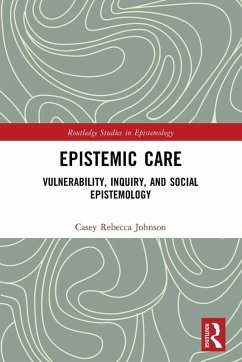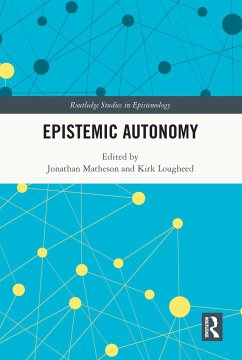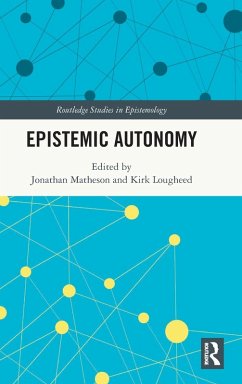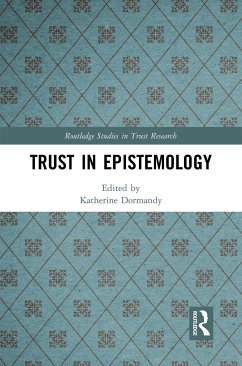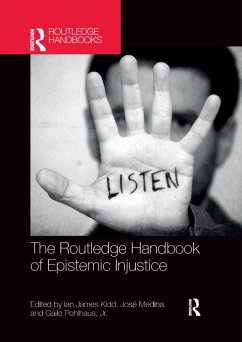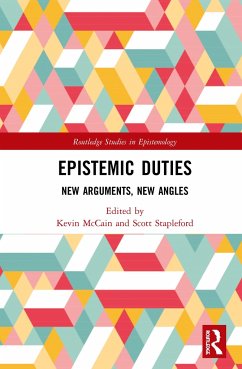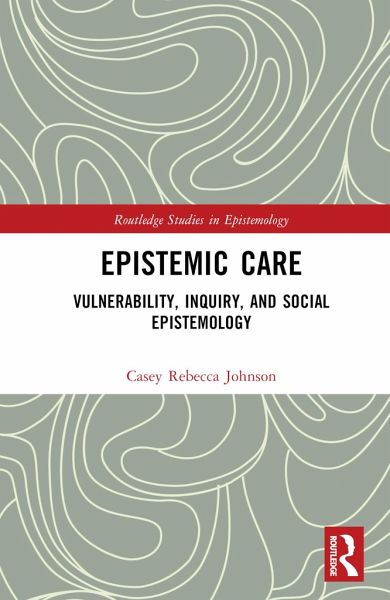
Epistemic Care
Vulnerability, Inquiry, and Social Epistemology
Versandkostenfrei!
Versandfertig in 6-10 Tagen
138,99 €
inkl. MwSt.
Weitere Ausgaben:

PAYBACK Punkte
69 °P sammeln!
This book uses the framework of care ethics to articulate a novel theory of our epistemic obligations to one another. It presents an original way to understand our epistemic vulnerabilities, our obligations in education, and our care duties toward others with whom we stand in epistemically vulnerable relationships.As embodied and socially interdependent knowers, we have obligations to one another that are generated by our ability to care - that is, to meet each other's epistemic vulnerabilities. The author begins the book by arguing that the same motivations that moved social epistemologists a...
This book uses the framework of care ethics to articulate a novel theory of our epistemic obligations to one another. It presents an original way to understand our epistemic vulnerabilities, our obligations in education, and our care duties toward others with whom we stand in epistemically vulnerable relationships.
As embodied and socially interdependent knowers, we have obligations to one another that are generated by our ability to care - that is, to meet each other's epistemic vulnerabilities. The author begins the book by arguing that the same motivations that moved social epistemologists away from individualistic epistemology should motivate a move to a care-based theory. The following chapters outline our epistemic care duties to vulnerable agents, and offer criteria of epistemic goodness for communities of inquiry. Finally, the author discusses the tension between epistemic care and epistemic paternalism.
Epistemic Care will be of interest to scholars andadvanced students working in social epistemology, ethics, feminist philosophy, and philosophy of education.
As embodied and socially interdependent knowers, we have obligations to one another that are generated by our ability to care - that is, to meet each other's epistemic vulnerabilities. The author begins the book by arguing that the same motivations that moved social epistemologists away from individualistic epistemology should motivate a move to a care-based theory. The following chapters outline our epistemic care duties to vulnerable agents, and offer criteria of epistemic goodness for communities of inquiry. Finally, the author discusses the tension between epistemic care and epistemic paternalism.
Epistemic Care will be of interest to scholars andadvanced students working in social epistemology, ethics, feminist philosophy, and philosophy of education.





